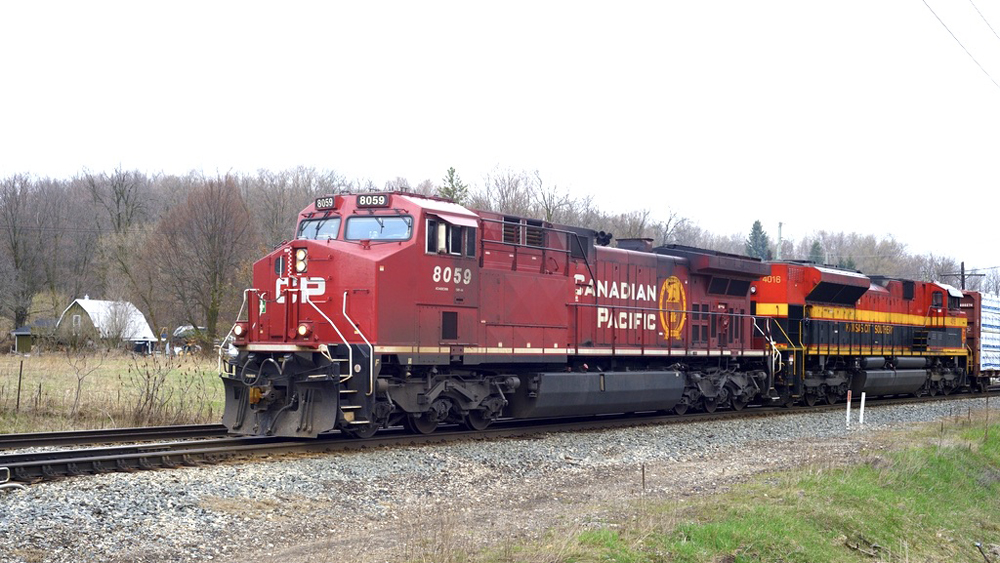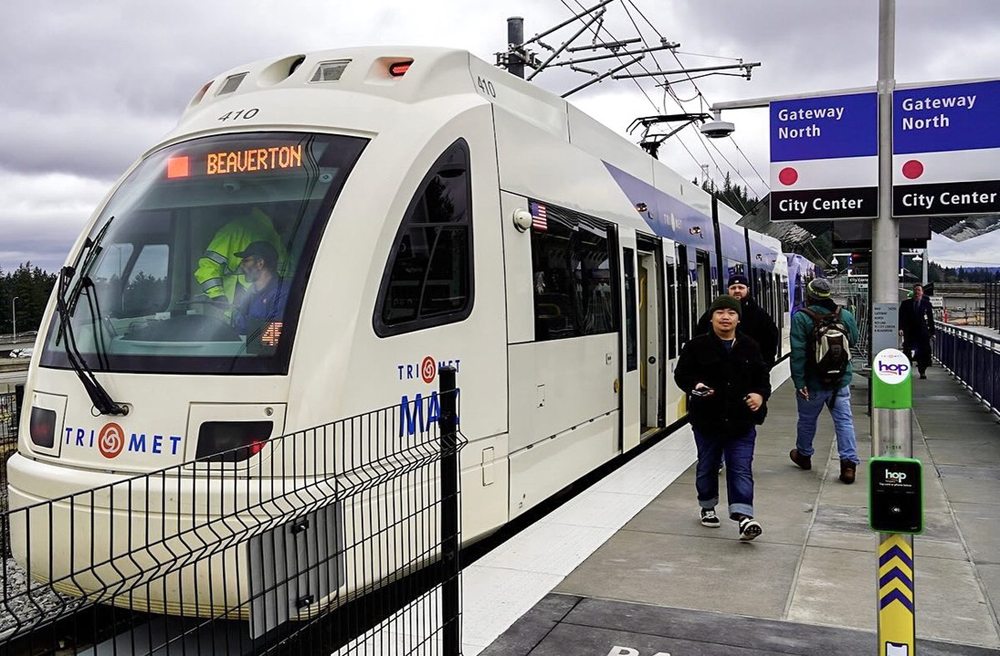
WASHINGTON — The Justice Department on Monday questioned Canadian Pacific’s plans to put Kansas City Southern into an independent voting trust while the railroads’ proposed merger is under regulatory review.
But the railroads, in a separate filing to the Surface Transportation Board on Monday evening, defended their merger, the voting trust, and their request to have the deal reviewed under the board’s older and less-onerous rules.
The Justice Department told the STB that it doesn’t have a position on the merits of the proposed $29 billion merger, the first involving Class I railroads in more than two decades.
“But the Department submits this comment to urge the Board to ensure that the parties do not take any action that would undermine the Board’s ability to conduct a meaningful review,” wrote Richard Powers, the Antitrust Division’s acting assistant attorney general. “Most importantly, as the Department has previously expressed, the Board should rarely, if ever, permit the parties to a proposed merger to use a so-called ‘voting trust’ to effectively consummate an acquisition before the Board has had an opportunity to consider whether the combination would harm competition.”
Voting trusts have been used in more than 140 railroad transactions reviewed by the STB and its predecessor, the Interstate Commerce Commission, since the industry was deregulated in 1980.
They are commonly used to insulate the company being acquired from premature control by the acquirer. In this case, the KCS management team would continue to direct the railroad’s operations and business strategy while the STB reviews the deal, CP has said.
But the Justice Department argues that voting trusts alter companies’ competitive incentives and may prevent KCS from effectively being removed from the voting trust if the STB were to reject the merger. Justice said it was possible that CP and KCS could use mechanisms other than a voting trust to accomplish the same goals.
The Justice Department’s lawyers also urged the STB to judge the CP-KCS merger using the more stringent 2001 review rules, which have prevented a merger of Class I systems since they were introduced.
KCS, due to its small size, received a waiver from the tougher merger rules. Several shipper organizations and four of the remaining five Class I railroads have asked the STB to review the merger under the new rules.
“Revoking the waiver would unnecessarily complicate and prolong the Board’s review of the proposed combination of CP and KCS, and thereby delay realization of the significant benefits the transaction offers shippers and other stakeholders,” CP and KCS told the board. “No party has raised any basis for concern with the merits of the transaction itself; rather, they merely seek to make the already-robust regulatory review process more time-consuming and burdensome.”
CP and KCS also argued that the waiver remains valid because KCS is still much smaller than the other Class I systems and that the combined railroad would still be the smallest Class I when measured by revenue.
The board can give the merger a thorough review under the old rules, CP and KCS argue, although they said it would clear the higher hurdle set by the 2001 rules.
The former STB board member who cast the deciding vote in the board’s waiver decision chimed in. “I believe that the reasons for adopting the KCS waiver from the New Merger Rules are just as valid today as they were back then, especially as applied to the proposed CP/KCS transaction,” former STB member William Clyburn Jr. told the board.
The railroads warned that judging their deal under the 2001 rules would carry the risk that “some might perceive as offering a road map for future transactions by the larger Class Is.”
U.S. Sen. Byron Dorgan also urged the STB to avoid using the 2001 merger rules. “I urge the Board not to crack the dam that has held back harmful transcontinental mergers for more than two decades by applying the new merger rules to the CP-KCS proposal,” the North Dakota Democrat wrote. “The STB should apply the Old Rules to CP-KCS so that the new merger rules remain untested and their uncertain implications will continue to deter further consolidation.”
The railroads said that creating “more burden and delay” for the transaction would invite rail acquisitions by private equity groups and other non-rail entities that are exempt from board review. Last summer two infrastructure funds sought to take the railroad private, which prompted the CP-KCS merger discussions.
CP and KCS also said their “plain vanilla” voting trust would ensure that KCS remains fully independent of CP. “Because of the dueling interest of private equity investors in buying KCS, without a voting trust none of the competitive and other benefits of the CP/KCS transaction will materialize,” the railroads said.
CP and KCS said today that 75 more customers, ports, transloads and other groups have filed support statements with the STB, bringing the total to more than 375 supporting the planned creation of the first U.S.-Mexico-Canada rail network. CP and KCS contend their merger would boost transportation competition, connect new markets, and provide new service offerings that would improve transit times and reliability.
— Updated at 8:05 p.m. CDT with details from latest CP-KCS filing to Surface Transportation Board














Regarding the CP/ KCS merger, the best objection was stated by the one dissenting vote on the KCS Board of Trustees (which was essentially ignored), ie, that the feint toward the CN/ KCS merger did not properly allow for government review and public comment to be considered in real time.